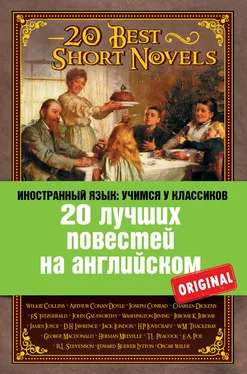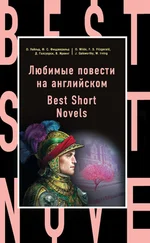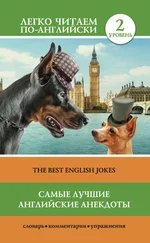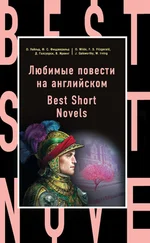At the end of the summer he went to Flanders, into action. He seemed already to have gone out of life, beyond the pale of life. He hardly remembered his life any more, being like a man who is going to take a jump from a height, and is only looking to where he must land.
He was twice slightly wounded, in two months. But not enough to put him off duty for more than a day or two. They were retiring again, holding the enemy back. He was in the rear – three machine-guns. The country was all pleasant, war had not yet trampled it. Only the air seemed shattered, and the land awaiting death. It was a small, unimportant action in which he was engaged.
The guns were stationed on a little bushy hillock just outside a village. But occasionally, it was difficult to say from which direction, came the sharp crackle of rifle-fire, and beyond, the far-off thud of cannon. The afternoon was wintry and cold.
A lieutenant stood on a little iron platform at the top of the ladders, taking the sights and giving the aim, calling in a high, tense, mechanical voice. Out of the sky came the sharp cry of the directions, then the warning numbers, then ‘Fire!’ The shot went, the piston of the gun sprang back, there was a sharp explosion, and a very faint film of smoke in the air. Then the other two guns fired, and there was a lull. The officer was uncertain of the enemy’s position. The thick clump of horse-chestnut trees below was without change. Only in the far distance the sound of heavy firing continued, so far off as to give a sense of peace.
The gorse bushes on either hand were dark, but a few sparks of flowers showed yellow. He noticed them almost unconsciously as he waited, in the lull. He was in his shirt-sleeves, and the air came chill on his arms. Again his shirt was slit on the shoulders, and the flesh showed through. He was dirty and unkempt. But his face was quiet. So many things go out of consciousness before we come to the end of consciousness.
Before him, below, was the highroad, running between high banks of grass and gorse. He saw the whitish muddy tracks and deep scores in the road, where the part of the regiment had retired. Now all was still. Sounds that came, came from the outside. The place where he stood was still silent, chill, serene: the white church among the trees beyond seemed like a thought only.
He moved into a lightning-like mechanical response at the sharp cry from the officer overhead. Mechanism, the pure mechanical action of obedience at the guns. Pure mechanical action at the guns. It left the soul unburdened, brooding in dark nakedness. In the end, the soul is alone, brooding on the face of the uncreated flux, as a bird on a dark sea.
Nothing could be seen but the road, and a crucifix knocked slanting and the dark, autumnal fields and woods. There appeared three horsemen on a little eminence, very small, on the crest of a ploughed field. They were our own men. Of the enemy, nothing.
The lull continued. Then suddenly came sharp orders, and a new direction of the guns, and an intense, exciting activity. Yet at the centre the soul remained dark and aloof, alone.
But even so, it was the soul that heard the new sound: the new, deep ‘papp!’ of a gun that seemed to touch right upon the soul. He kept up the rapid activity at the machine-gun, sweating. But in his soul was the echo of the new, deep sound, deeper than life.
And in confirmation came the awful faint whistling of a shell, advancing almost suddenly into a piercing, tearing shriek that would tear through the membrane of life. He heard it in his ears, but he heard it also in his soul, in tension. There was relief when the thing had swung by and struck, away beyond. He heard the hoarseness of its explosion, and the voice of the soldier calling to the horses. But he did not turn round to look. He only noticed a twig of holly with red berries fall like a gift on to the road below.
Not this time, not this time. Whither thou goest I will go. Did he say it to the shell, or to whom? Whither thou goest I will go. Then, the faint whistling of another shell dawned, and his blood became small and still to receive it. It drew nearer, like some horrible blast of wind; his blood lost consciousness. But in the second of suspension he saw the heavy shell swoop to earth, into the rocky bushes on the right, and earth and stones poured up into the sky. It was as if he heard no sound. The earth and stones and fragments of bush fell to earth again, and there was the same unchanging peace. The Germans had got the aim.
Would they move now? Would they retire? Yes. The officer was giving the last lightning-rapid orders to fire before withdrawing. A shell passed unnoticed in the rapidity of action. And then, into the silence, into the suspense where the soul brooded, finally crashed a noise and a darkness and a moment’s flaming agony and horror. Ah, he had seen the dark bird flying towards him, flying home this time. In one instant life and eternity went up in a conflagration of agony, then there was a weight of darkness.
When faintly something began to struggle in the darkness, a consciousness of himself, he was aware of a great load and a clanging sound. To have known the moment of death! And to be forced, before dying, to review it. So, fate, even in death.
There was a resounding of pain. It seemed to sound from the outside of his consciousness: like a loud bell clanging very near. Yet he knew it was himself. He must associate himself with it. After a lapse and a new effort, he identified a pain in his head, a large pain that clanged and resounded. So far he could identify himself with himself. Then there was a lapse.
After a time he seemed to wake up again, and waking, to know that he was at the front, and that he was killed. He did not open his eyes. Light was not yet his. The clanging pain in his head rang out the rest of his consciousness. So he lapsed away from consciousness, in unutterable sick abandon of life.
Bit by bit, like a doom, came the necessity to know. He was hit in the head. It was only a vague surmise at first. But in the swinging of the pendulum of pain, swinging ever nearer and nearer, to touch him into an agony of consciousness and a consciousness of agony, gradually the knowledge emerged – he must be hit in the head – hit on the left brow; if so, there would be blood – was there blood? – could he feel blood in his left eye? Then the clanging seemed to burst the membrane of his brain, like death-madness.
Was there blood on his face? Was hot blood flowing? Or was it dry blood congealing down his cheek? It took him hours even to ask the question: time being no more than an agony in darkness, without measurement.
A long time after he had opened his eyes he realized he was seeing something – something, something, but the effort to recall what was too great. No, no; no recall!
Were they the stars in the dark sky? Was it possible it was stars in the dark sky? Stars? The world? Ah, no, he could not know it! Stars and the world were gone for him, he closed his eyes. No stars, no sky, no world. No, No! The thick darkness of blood alone. It should be one great lapse into the thick darkness of blood in agony.
Death, oh, death! The world all blood, and the blood all writhing with death. The soul like the tiniest little light out on a dark sea, the sea of blood. And the light guttering, beating, pulsing in a windless storm, wishing it could go out, yet unable.
There had been life. There had been Winifred and his children. But the frail death-agony effort to catch at straws of memory, straws of life from the past, brought on too great a nausea. No, No! No Winifred, no children. No world, no people. Better the agony of dissolution ahead than the nausea of the effort backwards. Better the terrible work should go forward, the dissolving into the black sea of death, in the extremity of dissolution, than that there should be any reaching back towards life. To forget! To forget! Utterly, utterly to forget, in the great forgetting of death. To break the core and the unit of life, and to lapse out on the great darkness. Only that. To break the clue, and mingle and commingle with the one darkness, without afterwards or forwards. Let the black sea of death itself solve the problem of futurity. Let the will of man break and give up.
Читать дальше
Конец ознакомительного отрывка
Купить книгу












